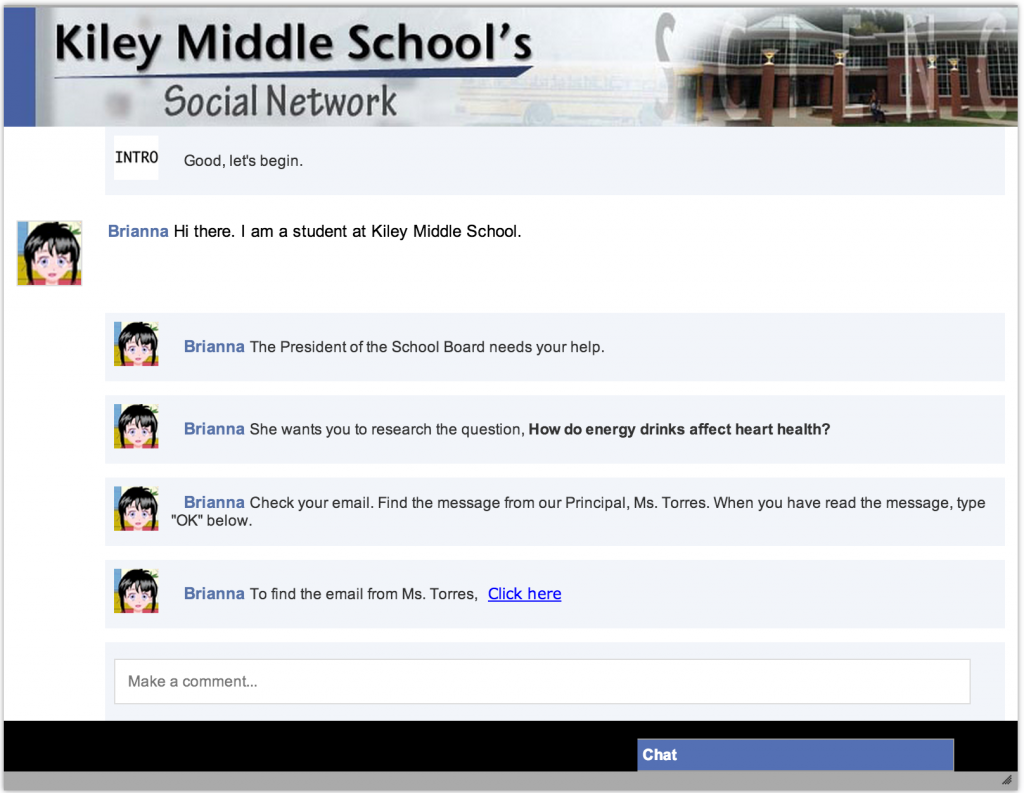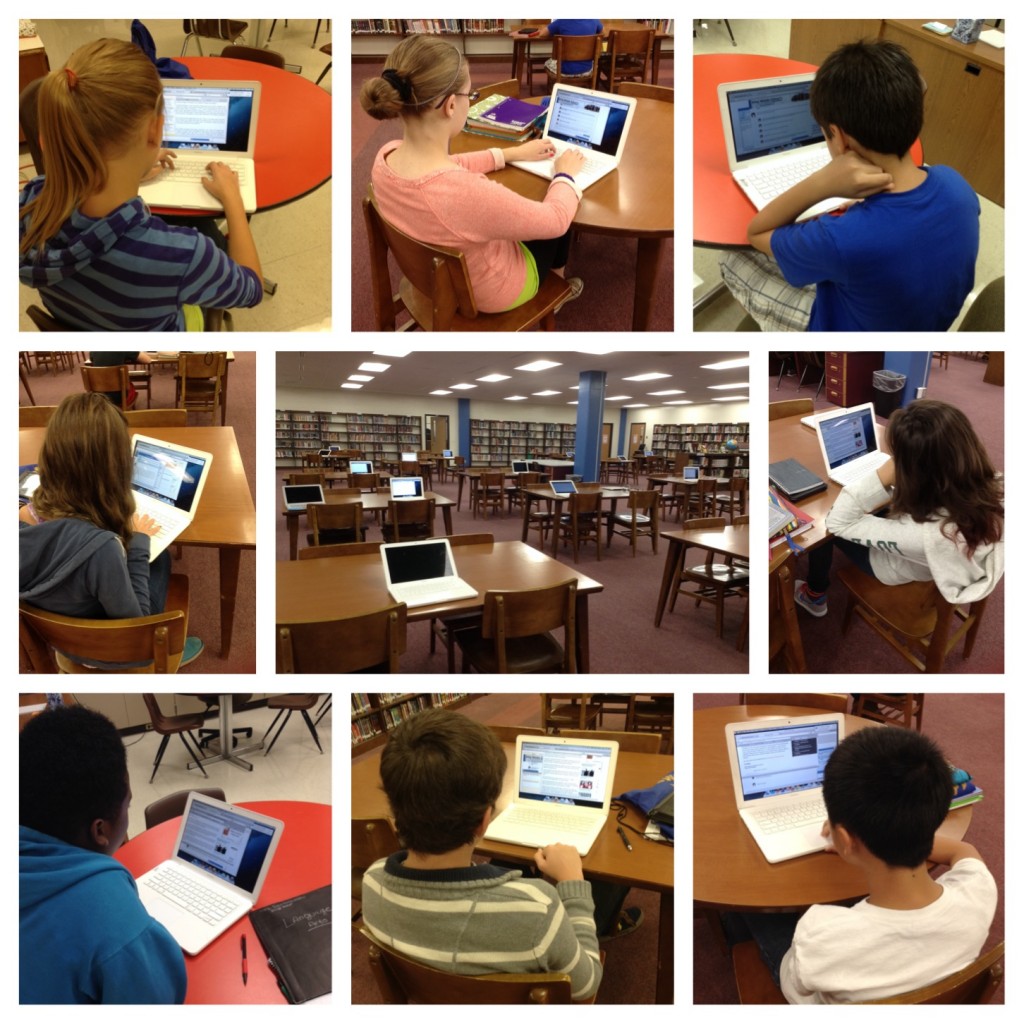Oct
2013
Online Reading Comprehension
‘Kids these days are so good with computers – certainly better than I will ever be! They’re whatchya call ‘Digital Natives’. They spend so much time with technology, they know exactly what to do. What could we possibly teach them in school?’
Have you heard something like this before? It’s a popular school of thought. Unfortunately, it’s fundamentally flawed, and research indicates that schools need to start addressing the issues of Digital Literacy: the ability to communicate (read, write, speak, listen) effectively via technology. It’s not enough to simply take students to the computer lab and give them time to do research or type up their papers. Putting technology in their hands does not automatically mean you are using technology effectively in the classroom. We need to actually show them – model – digital literacy skills of locating, evaluating, synthesizing, and communicating effectively online.
Another popular yet incorrect assumption is that reading books and reading online require the same set of reading strategies and skills. I mean – they’re both just information, right? Wrong. There are several key differences between reading online and reading traditional print that educators must understand. First, online texts are multimodal – they consist of media presented in multiple forms, from text to graphics, photographs, audio, video and more. Meaning can be conveyed through size, layout, proportion, and color. Students need to be taught how to ‘read’ these new kinds of ‘texts’ and draw connections between information presented in multiple media. This is hard work for our brain! Multimedia has so much potential for reaching our students with different learning styles and needs, but we must first teach them how to utilize it. Not to mention, there are SO many distractions and distractors online – it can be a real sensory overload!
When we read a traditional book, believe it or not, a lot of the work is done for us. The author has already pre-determined your purpose for reading, the order in which you will read everything, and how the text is organized. When reading online, we get to make all of these decisions for ourselves. We start out with a question or a problem, make decisions, click away, and build a ‘choose your own adventure’ kind of reading experience. Because online texts are nonlinear, this means that no two people will have the exact same online reading experience. And since we – the readers – are the ones with the question/problem, only we can determine when we have fulfilled our online reading purpose and we can stop reading. That’s a lot of pressure!
Students require strong metacognitive abilities (awareness of our thinking) when reading online, as they must constantly reflect on everything they read, whether it is pertinent to their reading purpose, and what to do next. Every single navigational choice or click requires self-regulating reading strategies (planning, predicting, monitoring, evaluation), forward inferential thinking (predicting – what do I expect to find when I click this?), prior knowledge (of both the reading topic and prior experiences with technology), and global reading strategies such as questioning and synthesis (how does this fit in with what I already know? just read on the previous screen?). Phew – reading online is tough! We use more reading strategies more often when reading online, and we use them in unique and creative ways that are distinct from traditional print reading strategies.
So you see, we do need to address these issues in the classroom. We need to model for our students and give them lots of guided practice with reading for comprehension online. Being raised around technology does not automatically make our students proficient online readers.
One tool that is helping to bridge this gap in American Schools is the ORCA: Online Reading Comprehension Assessment. It is a 5-year research project funded by the United States Department of Education. The research team, located at the University of Connecticut, includes Dr. Donald Leu, Dr. John Kulokowich, Dr. Nell Sedransk, and Dr. Julie Coiro. The team has been generous enough to let me use this tool to conduct my own research for my dissertation before the assessment will be made available to schools across the nation.
The ORCA measures students’ abilities with 4 critical digital literacy skills: locate, evaluate, synthesize, and communicate. This is NOT your typical standardized assessment! It is designed to look familiar to students – a lot like Facebook. The students login, create an online profile, then interact with a peer named Brianna who asks questions and gives the students tasks to perform. These tasks range from reading email, searching the Internet, locating specific articles, summarizing (1 article) and synthesizing (multiple articles) the information, copying and pasting, evaluate the credentials and credibility of an author and article, and finally constructing a summative email. The ORCA measures everything a student does from the terms they type into ‘Gloogle’ (the ORCA intranet version of Google), to which links they choose from a list of search results. In the end, there are 16 tasks that are measured.
For my research, I am conducting a 2-Phase Mixed Methods study that is investigating possible variables that may affect student success with the ORCA such as use of reading strategies, time spent on task, prior experiences with technology, and level of confidence. Here are my students taking the ORCA last week:
In my first phase, I administered the ORCA to 123 students in 8th grade. As you can see from the average scores below, we need to adjust our 8th grade Language Arts curriculum to address the skills of evaluating online texts (is this a credible source?) and communicating that information appropriately (constructing email, citing sources, etc.)
Average scores out of 4 (n=123)
Locate: 2.54
Synthesize: 2.91
Evaluate: 1.81
Communicate: 1.33
I can’t wait for this tool to be available nationwide – I think this is going to make a huge impact on students and the way we teach reading comprehension. I’ll be sure to keep you updated on the progress of my dissertation as well – I am actually excited about this project, and I know the results will be interesting and of critical importance.
![]()


CJ
October 23, 2013 at 9:19 am (11 years ago)This is really interesting!! A lot of hard work!! Great Job!!